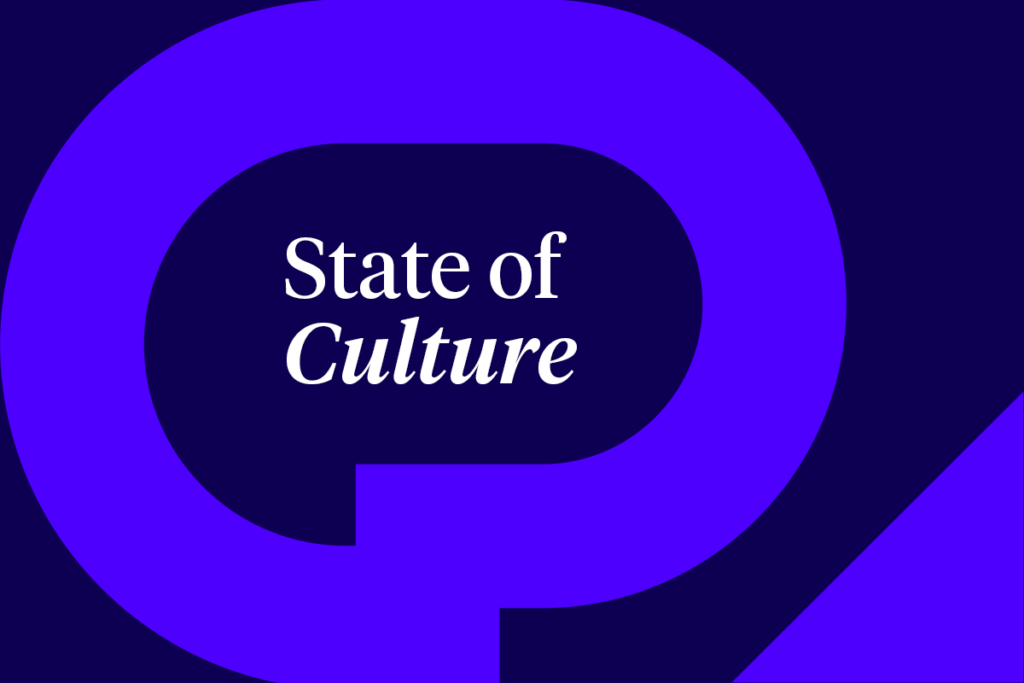You may be overlooking a powerful strategy that can propel your company’s growth upward: practicing gratitude. When you express gratitude for the work your teams put in, you create an experience for them that leads to the belief that their contributions matter. This means simply recognizing and communicating what you’re genuinely grateful for.
At its core, gratitude is appreciating your surroundings but taking it one step further. It’s mindfully being aware of the positive aspects of life along with the people, factors, decisions, and environments that led to them.
When you practice gratitude, you are consciously focusing on the positives in your life. Research suggests if you do this consistently, it rewires your brain to notice more positive elements of your life, subconsciously. This leads to increased happiness.

Gratitude is important because it neutralizes the negativity bias. It’s the concept that humans are biologically designed to focus more on the bad rather than the good. Think of media coverage, for example. Because of this psychological phenomenon, people click on articles with negative headlines more than positive ones.
Gratitude in the workplace
Gratitude is important because everyone wants to be appreciated. Yet University of California, Berkeley research shows people are least likely to express gratitude in the workplace. This creates a gap between what your employees want and what your company delivers. In turn, employees may leave to find a company that can fulfill their need to feel appreciated.
Gratitude is central to giving appreciative feedback, which is showing appreciation to your colleagues and what they bring to the organization. This includes their work, skills, effort, and personal qualities. Giving appreciative feedback keeps your people motivated and positive.
[newsletter_module]
Appreciative feedback can be demonstrated in many ways, both big and small. Examples include:
- A manager dedicates a portion of a debrief meeting to recognize the team’s efforts for a major project
- HR formalizes a monthly focused recognition program that honors exceptional performance
- An employee thanks her team for covering for her while she was on vacation
- Employees thanking C-suite’s responsible actions during a time of crisis
These gestures will have a positive impact on your company culture because gratitude is contagious. When you express gratitude to a colleague, it motivates them to reciprocate that behavior to you or others. This creates a chain reaction, which makes gratitude integral to your culture. Research shows that gratitude is strongly tied to greater happiness and positivity, which are key indicators of a strong culture.
Benefits of gratitude within your organization
Increased employee motivation and engagement
Appreciation and recognition are key to inspiring and motivating your teams. Acts of appreciation create positive experiences that signal to employees they are valued. When they believe they are valued, it motivates them to do their best. In fact, a study showed 93 percent of employees who reported feeling valued said they are motivated to do their best work and 88 percent also reported feeling engaged.
Frequent displays of empathy
Gratitude helps your people sharpen an important skill: empathy. When your employee practices gratitude, they not only recognize someone’s action but also the effort behind it. This puts them in someone else’s shoes, which is paramount to demonstrating empathy and creating great experiences for your customers.
An empathetic workforce also has many benefits like better communication. When your people are empathetic, they can read the room better and relate to others. This helps them adapt their communication style based on the situation and person or group. For example, addressing affected employees during a layoff needs a different tone than giving a speech about a new company initiative.
Encourages your people to help
An important part of gratitude at work is recognizing when a colleague helps. This motivates everyone around them to also lend a hand. In fact, a University of California, Riverside study found that people who received kindness not only reported higher levels of happiness and a better sense of camaraderie but were also motivated to help others. This is critical in today’s world where poor experiences with your company can negatively impact your brand’s reputation and bottom line.
Promotes mental well-being
Research suggests that gratitude can lead to many mental health benefits: better sleep, less anxiety, improved stress management, and more. Healthy employees are key to a successful company. When your employees are well, they are able to perform well.
How to bring gratitude to your organization
Start meetings with gratitude
Encourage your people to start meetings with gratitude. It doesn’t have to be every meeting. It could be a weekly staff meeting that a manager runs. The meeting could start with a simple question: “What are you grateful for today?” Starting with gratitude sets a positive tone for the rest of the meeting.
Recognize employees on a regular basis
If you only recognize employees on their work anniversaries, you’re doing it wrong. Focused recognition should be done throughout the year. Examples include an employee spotlight in your company newsletter, encouraging shout-outs during meetings, or organizing outings to celebrate hard work. Recognition should be regularly given to each person within your organization and focus on behaviors that create the culture you hope to build.
Say “thank you”
These two simple words can go a long way. In fact, a study revealed that 75 percent of U.S. employees said that if managers thanked them in real-time, motivation and company morale would improve.
University of Southern California research also showed that written ‘thank you’ notes are still effective. People value these notes because of the extra time and effort it took to create them.
Encourage rest after hard work
When your people work around the clock to finish a priority project, don’t just recognize their success. Encourage them to take a break once the project is over. This signals to your employees that you not only recognize their hard work but also care about their well-being.
If you want to transform your company with gratitude, we can help. Reach out to us and let’s discuss your culture.




